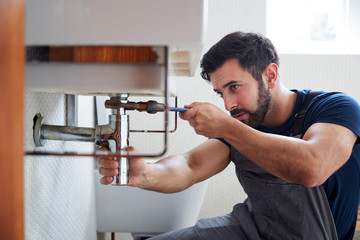A Security Guard monitors and patrols a property to ensure the safety of all people on the premises. They may also be tasked with investigating disturbances or emergency situations and making detailed reports. These security personnel are often trained to offer CPR and first aid assistance in emergency situations. Moreover, they can also be on standby to assist the police and fire departments. Click the https://dmacsecurity.net/ to know more.
They are often positioned at the entrances of buildings or any other places that may pose a threat. They are the first to see any incidents or disturbances that might occur. Their visible presence deters criminals from committing crimes like robbery, vandalism, or a physical assault. They can also keep the public informed by providing them with necessary information or directions.

Local neighborhoods and apartment complexes also use security guards to conduct neighborhood watch programs, control community access, observe all situations on the premises, and act as a continuous security presence to deter crime. They can also help communities with their security audits by identifying weak points that potential intruders can take advantage of.
Security guards are a great asset for any establishment. They provide a sense of protection and bring an aura of professionalism to the workplace. They are a good deterrent and are highly trained to notice any signs of suspicious activity. This means they can stop a criminal act before it even takes place. If they do spot any criminal activity, they can contact the authorities or detain a suspect until the proper authorities arrive.
Eyesight
Seeing is an important sense for security guards because their job requires them to patrol and observe the surrounding areas. They are also required to check for potential threats in their assigned area, write reports, and respond to alarms and disturbances. In addition, some security guards are trained to defuse conflicts and emergencies by following established protocols and contacting law enforcement or emergency services when needed.
Some of the duties a security guard may perform are preventing theft in retail stores and other public venues, escorting VIPs and celebrities, monitoring surveillance equipment, and providing customer service. They are often hired by companies to protect their property and assets, such as vehicles, building, and people, from theft or vandalism. Some of these security guards are armed, depending on the contracts they have with their clientele, while others work in unarmed positions.
In the Netherlands, the qualifications for a security guard are a security personnel permit and basic level training Beveiliger 2. Once these requirements have been met, candidates can start working in the industry. The security personnel permit is valid for three years and can be renewed. The basic training is five weeks and includes an internship at a security company. Upon completion, students receive a certificate that can be used to apply for a job as a security guard.
As a security guard, you will need to be able to walk for long periods of time and stand while performing your job. You will also need to be able to move quickly and quietly. Additionally, you will need to be able to read and comprehend complex information in short periods of time. This is especially true if you are an armed security guard.
Eyesight is an important sense for security guards because it allows them to detect any potential threats in the vicinity. In addition, they may need to see the details of a situation in order to make an informed decision about responding to it.
Many security guards work in indoor environments, but some are stationed outdoors to monitor parking lots and entrances to buildings. This means that they will need to be able to see clearly in various types of weather conditions, including fog, snow, and rain.
Hearing
Security guards may be required to patrol both indoor and outdoor environments in a variety of weather conditions. They often work in and around government buildings, banks, transportation centers, office complexes, schools, shopping malls and event venues. Some security officers are armed, while others work in plainclothes.
As a security guard, you may be called upon to testify in court for both criminal and civil cases. Criminal cases involve crimes against the property of your employer such as robbery or theft. Civil cases could include a private matter such as someone suing another for compensation after a break-in or an accident that occurred on your watch.
To prepare for this role, you undergo training and drills to learn about emergency response procedures, security protocols and legal regulations in your field. This training helps you feel confident to respond to any situation that arises on the job. You also learn how to interact with the public in a professional manner and how to handle situations like crowd control, active shooter responses and search and seizure laws.
You must be able to listen, understand and follow directions given by your supervisor. You are required to sit, stand or walk for long periods of time as you perform your duties. You must have good balance, hearing and vision. In addition to these physical requirements, you must be able to work in austere and uncomfortable conditions for extended periods of time and endure exposure to the elements.
Depending on the type of work you do as a security guard, you may be required to carry and store weapons or other equipment that is necessary for your job. You are also tasked with inspecting and testing the safety of these items. You must be able to understand and follow all rules, regulations and guidelines for carrying and using these weapons or other items.
You are required to wear a uniform, which is provided by the company for you to wear during your shift. This is important because it helps the public identify you as a security officer and gives them confidence that they can trust you to protect them.
Communication
Security guards work in a variety of settings and must communicate effectively in all situations. This can include interacting with guests, providing directions and offering assistance when requested. They can also have to write reports and document incidents that occur during their shifts. This requires clear recollection of events so that paramedics and responding officers can act quickly to de-escalate a situation, secure the area, redirect foot traffic or help people find their way out safely.
Security personnel often patrol premises to detect any signs of theft, damage or unauthorized entry and report suspicious activity to the proper authorities. They may also perform access control at building entrances and vehicle gates, meaning they must be able to verify that employees and visitors are authorized to enter. Other duties include responding to alarms; investigating disturbances and writing reports; apprehending suspects; conducting searches; enforcing rules and regulations and operating surveillance equipment such as CCTV cameras.
In addition to their patrolling and observing for signs of crime, many security guards are called upon to assist with serious emergencies such as medical problems or fires. They must be able to communicate with those who are experiencing these situations and summon emergency responders as needed. This is why clear communication, professionalism and physical fitness are essential to a career in the field of security.
For those who enjoy working in a customer-facing role, there are many options to choose from, including a job at a shopping mall where you can build a good rapport with regular patrons. Many officers who work in these types of positions report that it is one of the most rewarding aspects of their careers.
Other security guards may choose to focus on a specific location or a private event, where they can be stationed in the same spot throughout an entire event. This type of work may be better suited to those who prefer to have a consistent schedule and the ability to focus on a certain type of environment. Either way, there is a role for every personality in the field of security.

